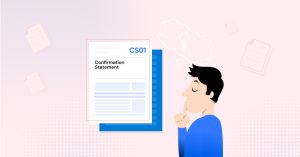When you're a parent or a caregiver, thoughts of taxes usually drift to concerns about payroll, exemptions, and deductions. But what about the Nanny Tax? It's a term that conjures up varied reactions, often confusion and worry for small business owners, freelancers, nannies, and parents alike.
Understanding the ins and outs of the Nanny Tax is crucial, not just for compliance but also to ensure that all involved parties are aware of their financial responsibilities and rights. In the UK, as elsewhere in the world, tax can be a confusing labyrinth, and the seemingly 'informal' agreements often come with many formal requirements.
Defining Nanny Tax: Why the Particular Moniker?
The term 'Nanny Tax' has garnished attention not just for its colloquial ring but for the unique aspects it bears. At its core, the Nanny Tax refers to the tax obligations that come with employing a nanny or caregiver. What many don't realise is that legally, a nanny is considered an employee if certain employment criteria are met, meaning tax and National Insurance (NI) contributions must be paid.
In contrast to a generic tax return, where the individual is assumed to be self-employed and is responsible for their tax obligations, the Nanny Tax is distinct in that it tackles employer responsibilities head-on.
Assessing Employment Status for Nannies
Before we leap into the nuances of Nanny Tax, it's prudent to examine the thorny issue of employment status. Deciding whether someone is employed or self-employed is not always clear-cut. The HMRC uses specific tests to determine if an individual is an employee.
For nannies, it boils down to:
- Control: If the parent dictates the work hours, duties, and way the work is done, this indicates employment.
- Substitution: The ability for a nanny to send a replacement suggests they're self-employed.
- Mutuality of Obligations: If a family is obligated to offer work and the nanny is required to accept it, it points to employment.
- Provision of Equipment: Use of personal equipment leans towards self-employment, whilst employer-provided resources lean the other way.
Who Pays Nanny Tax?
Short answer: The Employer.
Long answer: For the most part, if a nanny earns a gross annual income above the NI Lower Earnings Limit (£6,240 as of 2021/22), their employer is liable to pay Nanny Tax.
For parents, tackling this tax encompasses:
- Registering as an employer with HMRC.
- Running payroll to calculate deductions and NI contributions.
- Providing payslips and managing end-of-year reporting.
While for nannies, it implicates:
- Registering for self-employed if they're responsible for paying tax and National Insurance themselves.
- Ensuring the payslip and payroll from the employer are accurate and comply with HMRC protocol.
The Nitty-Gritty of Nanny Tax Rates
The Childcare element of Universal Credit can help parents with childcare costs, though caution—it doesn't cover the full amount. As for tax credits, these have transitioned into Universal Credit, a means-tested benefit that includes support with childcare costs. The government covers up to 85% of these costs, depending on income and number of children.
When it comes to calculating Nanny Tax:
- Earn over the Tax-Free Allowance? You owe 20% on your taxable income below £50,270, known as the basic tax rate.
- On income over £50,270, you enter the higher tax rate—a 40% rate applies here.
- Earned £150,000 or above? Congratulations, the additional tax rate of 45% on your taxable income awaits.
Navigating the Nanny Contract Tax
Central to Nanny Tax is the employment contract. This document should detail the obligations and rights of each party. You must have a proper contract in place, irrespective of the nature of employment—it's a legal requirement.
Key components of a comprehensive Nanny Contract:
- Hours of work and rates for standard hours.
- Overtime and bank holiday rates.
- Sick pay and notice periods.
- Pension arrangements. Check out new pension rules after the November Budget
Having a well-structured agreement minimises potential disputes and ensures clarity on tax obligations from the get-go.
The Pitfalls and Perils of Complacency
What happens if you ignore the Nanny Tax?
- Penalties: HMRC doesn't take ignorance lightly. Failure to comply leads to hefty fines.
- Back Payments: If found recalcitrant, you could be on the hook for back payments.
- Criminal Charges: In extreme cases, criminal charges for tax evasion could follow.
Composure against complacency is a must when it comes to Nanny Tax. It's better to be proactive than to scurry in reactive mode, post-HMRC contact.
The Golden Rules of Nanny Tax Compliance
For parents and employers:
- Keep meticulous records.
- Register as an employer with the HMRC.
- Understand and use PAYE accurately to calculate Nanny Tax.
- Stay informed about current rates and thresholds.
For nannies:
- Always agree to a written contract.
- Keep track of earnings and payslips.
- Register for self-assessment with HMRC if required.
- Understand how taxes and National Insurance affect your income.
The Safety Net of Nanny Insurance
Nanny Insurance is a prudent step towards comprehensive coverage. It protects both the employer and the nanny from legal and health-related issues that may arise. This often includes Public Liability, Employers' Liability, and Personal Accident Insurance. It's an added expense, but it can save you from unexpected financial stress.
Wrapping Up the Nanny Tax Journey
Navigating Nanny Tax is a critical component of ensuring legal and financial clarity in the relationship between parents and caregivers. It's not just about mechanics; it's about ensuring fair practice and respect for the effort nannies put into caring for our young ones. By understanding the nuances, exercising due diligence, and seeking professional advice when needed, we can all ensure that Nanny Tax ceases to be a point of confusion and becomes an effective part of maintaining a balanced and secure home environment.
In conclusion, Nanny Tax encapsulates the term 'hidden costs.' It’s not always transparent or straightforward, but with a proactive stance and a willingness to comprehend, it can be a manageable area of your financial landscape. Whether you're seeking to become an employer, are currently employing a nanny, or working as one, embracing the responsibilities and knowledge this entails is the first step in creating a safe, lawful, and harmonious working environment.













